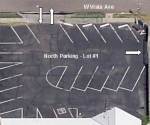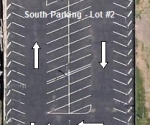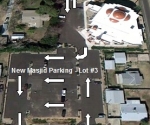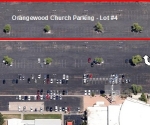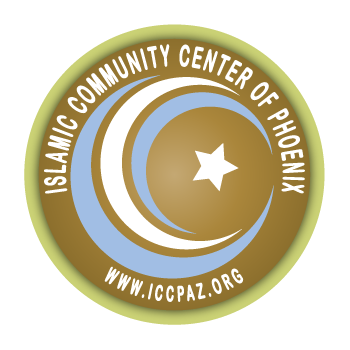About ICCP

The Islamic Community Center of Phoenix moved into its present mosque (a former church) in 1997. Started by Muslim residents of the north valley in early 1980’s, the congregation has moved several times to keep pace with the steady growth of the community. Dependent entirely on the donations of its members, the ICCP has managed to purchase land adjoining the present mosque and complete the first phase of a new, permanent structure at the location. The new mosque is designed to accommodate over 800 worshipers for Juma’a (Friday congregational) prayers.
The Islamic Community Center of Phoenix has been incorporated in 1982 as a not-for-profit religious organization with the Arizona Corporation Commission. The ICCP also derives a preferential tax treatment from the Federal Internal Revenue Service (IRS) and Arizona State Treasury Department by adopting and complying with section 501 (c)(3) of the IRS tax code with tax I.D # 94-2925023. Charitable donations made to ICCP can be used as tax deductions by individuals and corporate entities. The land deeds of ICCP are entrusted with the North American Islamic Trust (NAIT), which is a “Waqf”, the historic Islamic equivalent of an American trust or endowment.
The mosque is open for daily Salat (Prayer) and serves about 600 attendants for Juma’a (Friday congregational) worship. The mosque also sponsors weekend study circles (Halaqah) on Fridays, Saturdays and Sundays, teaching subjects such as:
- Pillars of Islam.
- Tenets of Faith.Qur’anic exegesis (Tafsir).
- Life of the Prophet Muhammad (Peace be upon him) (Sirah).
- The virtues of the Prophet Companions (Sahaabah).
- Stories of the Prophets.
- Fiqh and Islamic Laws, and more.
The day-to-day administration and operation of ICCP is conducted by a Board of Directors and an Executive Committee. All members of these committees are volunteers and do not draw any financial benefits from their services to the mosque.
To gain the pleasure of Allah by serving the best interest of Islam and Muslims in the greater Phoenix area in particular and all Muslims in general, so as to enable them to practice Islam as a complete way of life.
Mission:
- Help the Muslim community of the Phoenix metropolitan area carry out Islamic programs and projects in accordance with the guidelines of the Holy Quran and the Sunnah.
- Assist Muslims in organizing themselves for the entire spectrum of Islamic activities including, but not limited to social, cultural, religious, and educational activities.
- Strengthen fraternal bonds and brotherly relations among Muslims.
- Mobilize and coordinate human and material resources in Muslim communities.
- Promote friendly relations and understanding between Muslims and non-Muslims in accordance with the teachings of the Holy Quran and the Sunnah.
- Endeavor to make Islamic teachings known to Muslims and non-Muslims, as in the Holy Quran and the Sunnah.
- Promote cooperation with other Muslim organizations on state, regional, national, and international levels, in accordance with the guidelines of the Holy Quran and the Sunnah.
Sheikh Mahmoud Abdul-Aziz Ahmad Sulaiman
Sheikh Mahmoud Sulaiman has served as the Imam of the Islamic Community Center of Phoenix (ICCP) since 2002. Prior to his arrival at ICCP, he was Imam at the Islamic Center of New Mexico, Albuquerque, New Mexico.
He has extensive experience as a religious leader, and since assuming his position at ICCP, he has provided various educational and outreach community programs. He is active with other Islamic centers in the Valley and works with other Sheikhs and Imams who seek his advice on Islamic issues.
With the assistance of the ICCP board members, he has been very active with non-Muslim organizations. With the representatives of churches and synagogues he discusses the similarities between Islam and different faiths and emphasizes the Islamic teachings concerning respect for other beliefs.
Sheikh Mahmoud is an Al-Azhar University graduate. A specialist in the sciences of hadith, he has memorized many ahadith and their interpretations. His deep knowledge of the Qur’an and his ability to cite evidence from it enables him to explain complex hadith in a manner understandable to all.
Educational Background
Sheikh Mahmoud has invested more than 33 years in studying Islam. He memorized the Qur’an at the age of eleven. He attended Al-Azhar Preparatory Institute of Demmiette, Egypt, from 1968 till 1971, followed by Al-Azhar Secondary Institute of Demmiette, Egypt until 1975. In 1977, after two years of studying business at Al-Azhar University, Cairo, Egypt, he joined the University’s Faculty of Islamic Theology (College of Usool Al-Din), where he focused on the sciences of hadith. He learned from well-established hadith scholars and obtained his Bachelor’s degree in 1981.
In 1989, he joined the graduate program of the Faculty of Islamic Theology at Al-Azhar University and in 1992, gained his “Diploma in the Sciences of Hadith.” He continued his studies, achieving his Master’s degree with distinction in 1995. He then attended the Institute for the Preparation of Muslim Teachers, Port Said, Egypt, completing the program in 1996.
Work Experience
From 1996 to 1997 he also worked as an instructor at the Institute for the Preparation of Muslim Teachers, Port Said, Egypt, specializing in training teachers to give Islamic speeches. He attracted many students with his unique approach to teaching methodology.
Sheikh Mahmoud established four organizations while he worked at the Ministry of Awqaf, Demmiette, Egypt. The first organization was “The Village Youth Center,” established in 1989. He chaired this organization with the help of others. They established a new building located on the Nile. The center offered both sports activities as well as religious programs. The second was “The Society of Patients’ Friends” in 1991. The main purpose was to help needy patients by providing them free medical treatment and medications. The third organization was the “Finance House” or “Baitul Maal” in 1995. This was instrumental in supporting many poor people by providing them with educational programs, offering interest-free loans, providing professional training for poor people, and helping orphans, etc. He was effective in attracting many youngsters to the center. The fourth organization was the Association for Facilitating Hajj for the community of Kafr Saad.
From 1997 to 1998, he worked as a visiting Imam for the Islamic Center of New Mexico, Albuquerque, New Mexico. As a result, he was offered a full-time Imam position from 1999 until 2001. He played a vital role in community outreach following the 9/11 terrorist attacks. As a participant in several panel discussions at the University of New Mexico and in meetings with representatives of governmental organizations, he explained how Islam teaches against violent acts and the killing of innocent people. In 2002, he joined the Islamic Community Center of Phoenix, Arizona.
Sheikh Mahmoud’s Activities at ICCP
Sheikh Mahmoud gives the Friday khutbah with new topics weekly. He covers a wide range of subjects such as Islamic beliefs; Islamic guidelines; Qur’anic tafsir; and Prophet Muhammad’s character and life.
He provides weekly speeches on Friday nights for men and women. He also gives a weekly speech on Saturday nights for ladies. Each Saturday after Fajr prayer, he offers a short talk. Sheikh Mahmoud covers diversified issues including Islamic basics; Muslims’ relationships with non-Muslims; respecting other people’s religions; being a good citizen and law-abiding person; how to become righteous; dealings with and respecting one’s neighbors; teachings of the Prophet Muhammad; understanding and interpreting the Qur’an; and implementing the teachings of the Qur’an in one’s life.
Sheikh Mahmoud addresses each topic from the point of views of the four schools of thought (Hanafi, Shafi’i, Hanbali, and Maliki). He teaches an ongoing tajweed (Qur’anic recitation) class and previously gave a course on the sciences of hadith. For the children and young people of the community, Sheikh Mahmoud organizes and teaches at the ICCP’s weekend school.
Spiritual Leadership
Sheikh Mahmoud provides leadership to community members by tending to their spiritual needs. He encourages community members to visit him by appointment each day during his evening “office hours.” He attends to people’s spiritual needs at times of bereavement not only by officiating at funerals and burials, but also by visiting the homes of the bereaved families to recite Qur’an and to give talks encouraging people to remember Allah during difficult times. He also performs marriages and counsels community members about marriage and family issues.
Construction Project
Sheikh Mahmoud has worked tirelessly to support the building of a new mosque to accommodate the increasing number of community members, especially the number of worshippers on Fridays. The first phase of the project’s construction is complete. He is leading the drive to encourage people to donate funds for the second phase.
Interfaith Initiatives
Sheikh Mahmoud has a strong belief in respecting non-Muslims and in establishing good relationships with non-Muslim organizations. During Sheikh Mahmoud’s tenure, with the support of the ICCP board, many church and synagogue representatives have visited the ICCP to learn about the true teachings of Islam toward other religions. Sheikh Mahmoud has, in turn, visited several other faith organizations and has given talks about respecting and dealing with non-Muslims. He has gained admiration because of his constant interaction with several leaders from other faiths. Sheikh Mahmoud also encourages interaction at the ICCP with representatives of governmental and private non-religious organizations, so they can learn about Islam and Islamic teachings.
Board of Trustees
Function: The Board of Trustees is the main governing body of the organization with the basic responsibility of safeguarding the trust consisting of all tangible and intangible assets. In addition, the Board is responsible for:
- Implementing the constitution (ByLaws) of the ICCP.
- Be the final authority in all matters concerning the affairs of ICCP.
- Formulate overall policies and guideline promoting the aims and purposes of ICCP.
- Appoint members for the Executive Committee, director, Imam.
- Evaluate the performance of the ICCP Director, School Director, the Imam and other employees of the ICCP.
Board Members (Volunteers):
- Usama Shami – Chairman
- Dr. Mounib Shaaban – Treasurer
- Zeeshan Siddiqi – Vice Treasurer
- Suliman Saadeldine – Member
- Abdul Qadir Arifi – Member
Executive Committee
Function: The Committee is responsible for the day-to-day management of ICCP. In addition, the Committee is responsible for:
- Approving the Budget.
- Appointing a certified Public Accountant who is not among the officers of ICCP to audit the accounts of the ICCP.
- Select delegates to represent ICCP when needed.
- Prepare an Annual Report.
- Receive and investigate the complaints from members of the General Assembly.
Committee Members (Volunteers):
- Abbid Ally – President
- Idris A Idris – Secretary
- AbdulAziz Erkinov – Member
It is ICCP intent that Masjid (Mosque) attire and conduct should reflect a positive environment that complies with an Islamic atmosphere and allows its congregation and visitors to fully enjoy the center. Please feel free to contact us if you need any assistance in this regards.
Dress Code
O Children of Adam! wear your beautiful apparel at every time and place of prayer: eat and drink: But waste not by excess, for Allah loveth not the wasters. “Al-A’raf 31”
Muslims Dress Code Policy:
- Dress/attire that covers the entire body.
- Clothing should be loosely fitted.
- Clothing should not be of a transparent material.
- Clean clothing is required, clothes with foul-smelling odors should not be worn to the Center.
- Extra strong perfume, cologne or ‘itr is not recommended.
- Ensuring that clothing are covering the knees
- Hijab at the least is a requirement of Islam. However no sister is to be discouraged, reprimanded or asked to leave ICCP for not adhering to Hijab, but Hijab is required to pray. Please contact us for any further details.
- We encourage Muslim men to dress in attire that is distinct from women’s clothing.
- We encourage Muslim women to dress in attire that is distinct from men’s clothing.
Visitors Dress Code Policy: Non- Muslim guests and visitors shall also exercise modesty. It is the responsibility of ICCP Office Administrator/Imam and/or volunteer who arranges the visit of persons of other faiths, to inform them of the broad outline of the ICCP dress code. However, the policy of the center does not aim to stop anyone from visiting the center due to lack of compliance with ICCP dress code. Exceptions under extreme intolerable circumstances may be made by ICCP management.
Parking Code
- Use only the parking lots listed on this page, do not use neighboring resident’s, business’s or complex’s parking spaces, the management at these places have the right to tow your vehicle at your expense.
- Park only inside the marked spaces, any vehicle not parked inside marked spaces, parked on more than one space, blocking the entrance or the exit, or double parked will be towed without warning at owner expense. “Phoenix City Code Sec. 36-144”
- Adhere to the parking volunteers directions.
- We do not advice parking on the streets surrounding the Masjid, but if you do, do not block any neighbor drive way or trash access, do not park on top of the sidewalk, and follow the traffic rules when parking close to a fire hydrate, stop sign, curves, or intersections.
- Do not park in reserved or marked handicapped spaces.
- Drive slowly and speed limit when entering and exiting the parking lots and when driving through the neighborhood.
- Give pedestrians the right of way, respect other drivers, and wait for your turn.
- Do not leave children alone in the vehicle, and do not leave any valuables visible.
- No overnight parking without ICCP management approval.
- ICCP, the management, volunteers and officers are not responsible for any damages or fees to your vehicle while parked on any of the parking lots owned or provided by ICCP.
General Code
- All people attending the ICCP shall conduct themselves in Islamic manners in compliance with the Holy Quran and the Sunnah. Everyone shall exercise tolerance and respect for the rights of others and their opinions. Everyone shall refrain from raising his or her voice and from speaking offensively of anyone.
- No one (except the designated ICCP announcer) has the authority to make announcement or distribute literature or to sponsor any gatherings on the grounds of the ICCP, or at any activity organized by the ICCP without the prior written consent of the ICCP chairman of the Executive Committee.
- Any Muslim, who wishes to speak to the General Assembly after Friday prayer, shall seek the consent of the chairman of the Executive Committee.
- Smoking is not permitted at any time inside the building, and it is discouraged outside the building.
- Food and beverages will not be allowed in the hallways, prayer areas, and parking lot.
- Overnight staying is not permitted on days other than the I’tkaf days announced by ICCP.
- In the event that the Executive Committee becomes aware of any violations of the code of conduct set forth herein, the Executive Committee shall implement one or more of the following disciplinary actions at its discretion:
- Advice the person.
- Suspend the person’s membership if advice is not followed.
- Suspension can be lifted once the person corrects his/her action and submits a written apology. As a last resort, barring the violator from the grounds of the ICCP.
- Visiting speakers do not represent the policies or the stand of the ICCP, and they should submit to the chairman of the Executive Committee in advance the content of their speeches, whether in oral or in written form.
- No unauthorized fundraising will be permitted.
- ICCP entrances and exits must be kept free from obstruction at all times.
- Any individuals attending or visiting will not under any circumstances hold the center responsible for any claims regarding injuries and damages against persons or property which may be brought about during or as a consequence of attending or visiting the center.
Share This:
- Click to share on Facebook (Opens in new window) Facebook
- Click to share on X (Opens in new window) X
- More
- Click to email a link to a friend (Opens in new window) Email
- Click to print (Opens in new window) Print
- Click to share on Pinterest (Opens in new window) Pinterest
- Click to share on LinkedIn (Opens in new window) LinkedIn
- Click to share on Reddit (Opens in new window) Reddit
- Click to share on Tumblr (Opens in new window) Tumblr
- Click to share on Pocket (Opens in new window) Pocket


